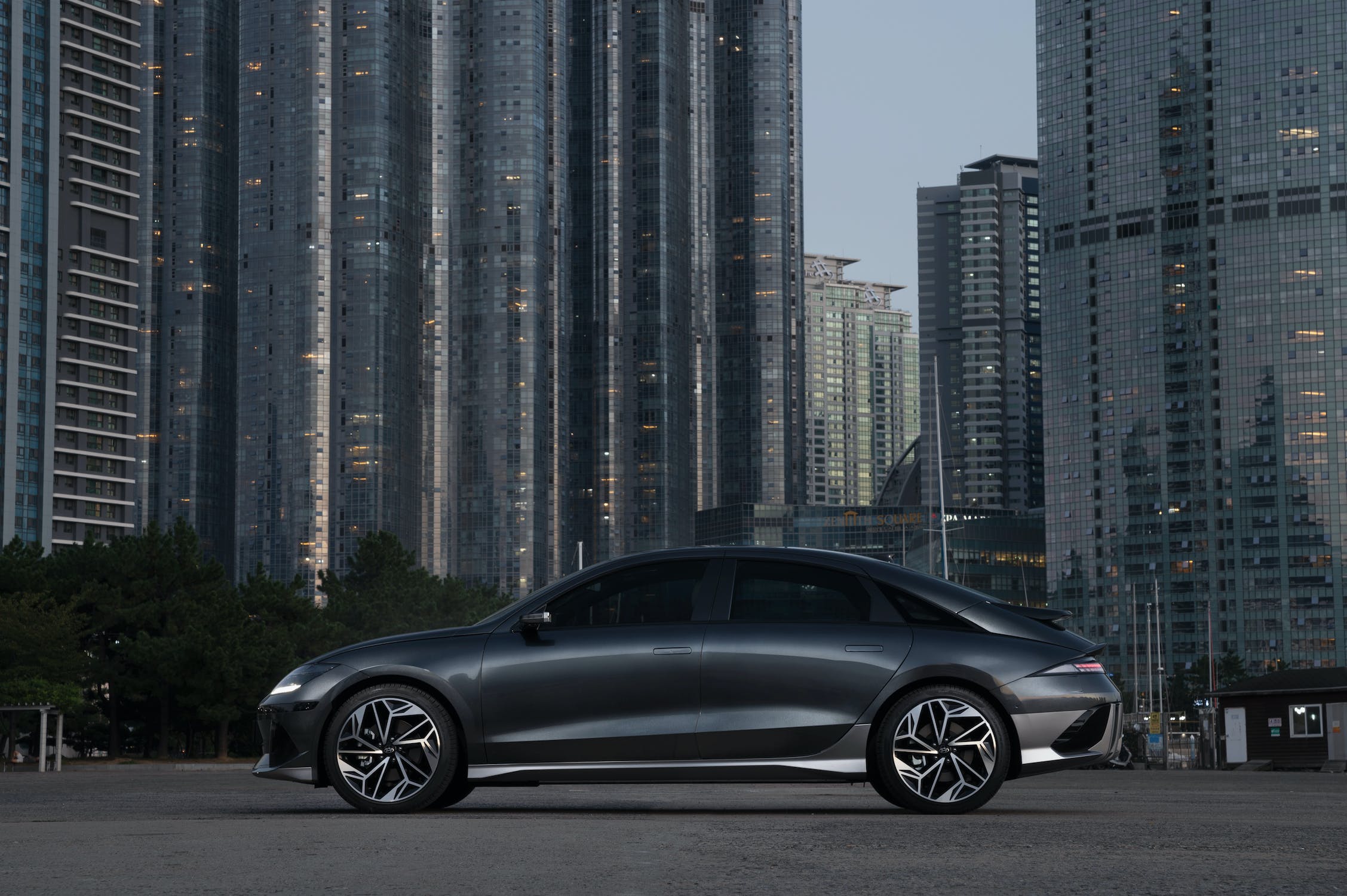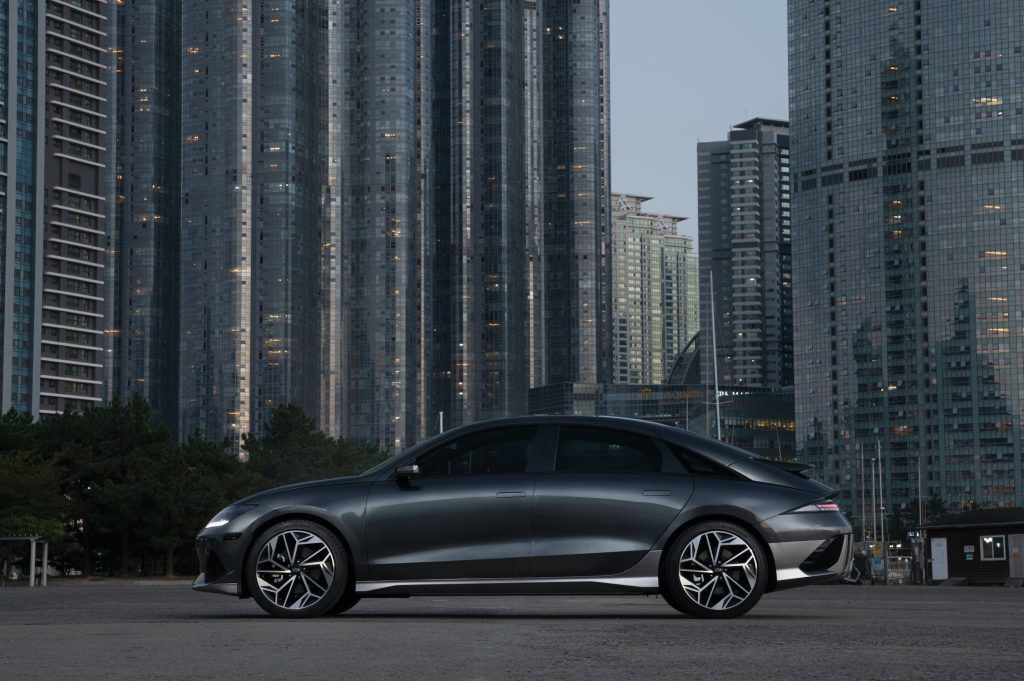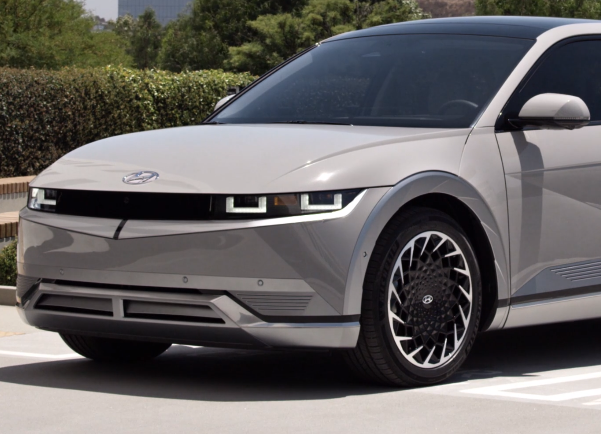
The thought of an electric vehicle intrigues many drivers in the Dublin, California, area. While EVs were once considered futuristic dream cars reserved for the ultra-wealthy, the truth is that EVs are more attainable and mainstream than ever. However, since traditional, gas-powered engines have dominated the market since the invention of the car in the late 1800s, many people are hesitant to make the switch.
The more you know about EVs, the more likely you are to understand their advantages and make the jump the next time you invest in a new car. Hyundai has an impressive lineup of EVs, including the fully electric IONIQ 5 and IONIQ 6. Here, we break down some of the most commonly asked questions when it comes to EVs to help you gain a great understanding of what they’re all about.
What Are the Different Types of EVs?
The first thing to understand about EVs is that they’re not all designed in the same way. In fact, there are four different types of EVs on the market: hybrid, plug-in hybrid, fully electric, and fuel cell.

Hybrid
Hybrid vehicles have both a gas-powered engine and a battery-powered electric motor. Hybrids typically use both the gas-powered engine and the electric motor simultaneously, giving a boost to fuel economy. Some hybrids are capable of running exclusively on their battery-powered motor for short distances (a mile or two). The battery is recharged by regenerative brakes, meaning charging at an outlet is unnecessary.
Plug-In Hybrid
Plug-in hybrids follow a similar concept as the aforementioned hybrid but differ in that their battery is larger. For this reason, plug-in hybrids can drive for longer distances on just their electric motors. The larger battery extends the combined range, too, allowing you to go for much longer distances between stops to refuel or recharge. Unlike the regular hybrid, you recharge the battery using a plug-in outlet.
Fully Electric
Fully electric cars are increasing in popularity every year due to their elimination of the need for gas. Fully electric cars are just that — they are cars that rely solely on a battery-powered motor in place of a gas-powered engine. Driving ranges are getting longer and longer every year, and an increase in charging stations across the country makes them convenient to recharge, no matter where the road takes you.
Fuel Cell
Like fully electric vehicles, fuel cell vehicles also eliminate the need for gas-powered engines by relying solely on a battery-powered motor. The battery is recharged via pressurized hydrogen in a fuel cell stack and gives off water from the tailpipe.
What Are the Benefits of EVs?
The benefits of EVs extend beyond the consumer and impact the world around us. While the higher cost of some EVs might be worrisome to potential buyers, if you compare the increased sticker price to the benefits you’ll receive in the long run, you might realize that an EV is worth it after all.
Fuel Savings
Saving money on fuel is one of the most widely recognized advantages of buying an EV. If you opt for a hybrid, you’ll see small changes in your monthly gas expenditures that will add up in the long run. If you opt for a fully electric or fuel cell EV, you’ll immediately notice the change. Instead of regular stops at the gas pump, you’ll be able to happily drive by never having to purchase gas again.
Maintenance Cost Savings
An electric motor is less complex than a gas-powered engine. It has fewer moving parts and fewer things that can go wrong over time. You’ll be delighted to find that with fully electric vehicles, you can forever skip standard maintenance tasks, such as oil changes, spark plug replacements, and fuel filter replacements.
Improved Performance
You’ll notice a difference in performance as soon as you take a seat behind the wheel of an EV. Electric motors produce peak torque from a standstill, meaning you’ll experience faster acceleration without having to wait for the buildup that you’re used to from a gas engine. Most electric cars have the battery pack in the center of the vehicle, creating a more stable and balanced center of gravity that results in better handling and cornering.
Fewer Emissions
Transportation is the number one source of greenhouse gas emissions in the U.S. Over time, greenhouse gas emissions trap heat in the atmosphere, contributing to global warming. Fully electric EVs produce zero tailpipe emissions, thus contributing to cleaner and healthier air around us.
Why Choose the IONIQ?

Hyundai has an impressive fleet of hybrid and electric vehicles that are well known for being efficient and reliable. The IONIQ 5 is a fully electric SUV, while the IONIQ 6 is a fully electric sedan. Both versions offer an extensive range and fast charging time. The IONIQ 6 owns a spot among the top three electric cars when it comes to range, with a base price approaching 50K less than its competitors. The IONIQ 5 has the potential to go 303 miles per charge, while the IONIQ 6 can go 361 miles, giving you peace of mind when on the road.
When it’s time to charge, the IONIQ is fast, going from 10% to 80% capacity in just 18 minutes at a fast-charge station. When you stop by a standard 400-V charging station to charge your IONIQ, you’ll be back on the road after just 25 minutes.
The IONIQ also doesn’t skimp when it comes to power. The largest battery option available in the IONIQ is 77.4 kWh, reaching 320 horsepower and 446 lb-ft of torque. Clearly, just because it’s lacking gas doesn’t mean it’s lacking energy.
The IONIQ is a stand-out option in the EV market that deserves an up-close look. If you’re interested in making the jump to an EV and are interested in learning more about the IONIQ, contact us today at Dublin Hyundai, California, with any questions you might have or come in for a test drive. Check out our latest inventory online to see what we have available. Your dream car could be just a click away.
A Black Hyundai Ioniq 6 by Hyundai Motor Group is licensed with Pexels License





